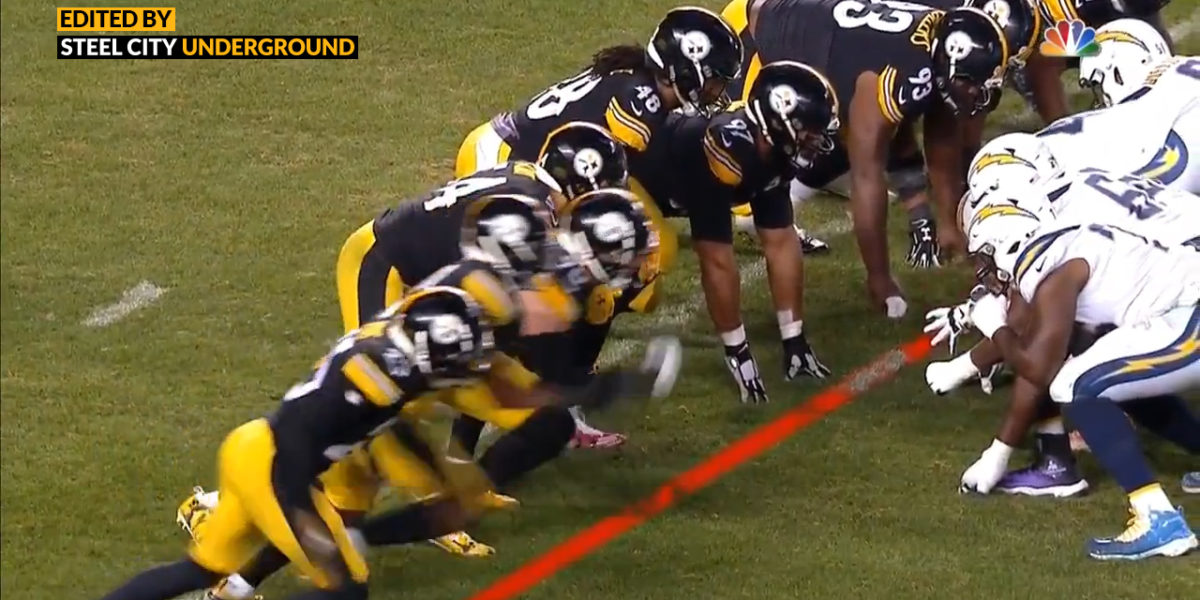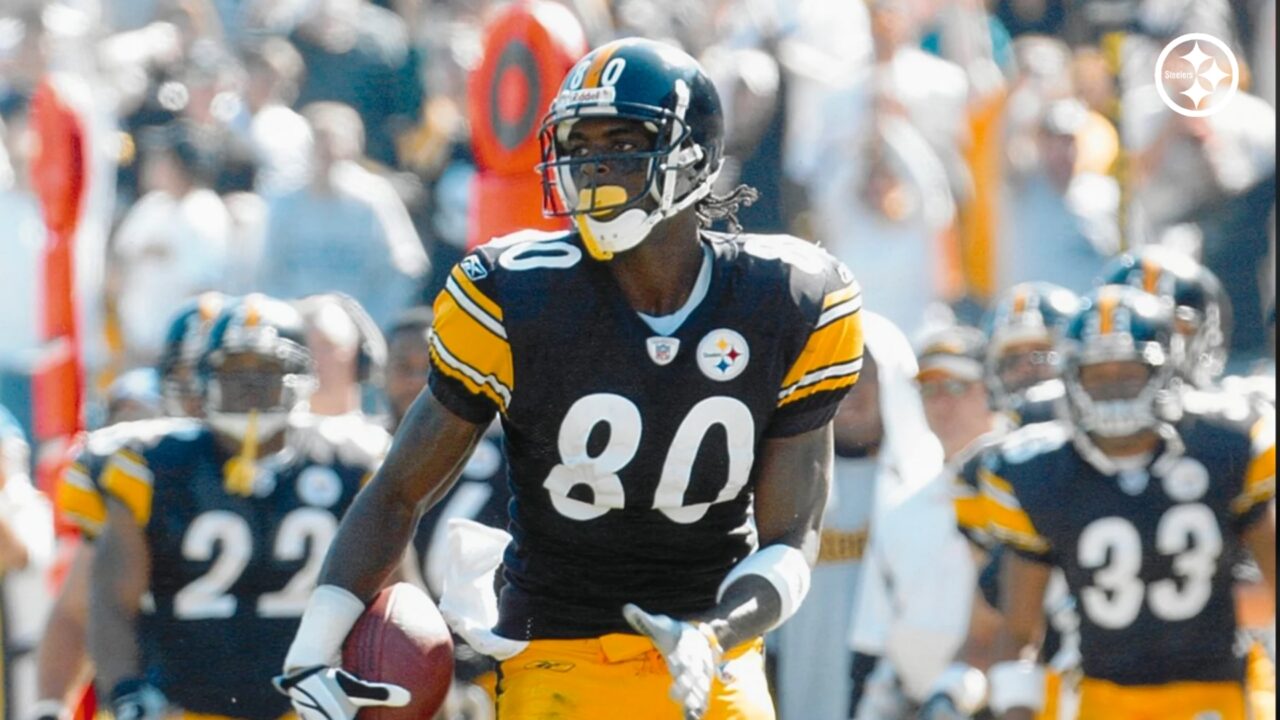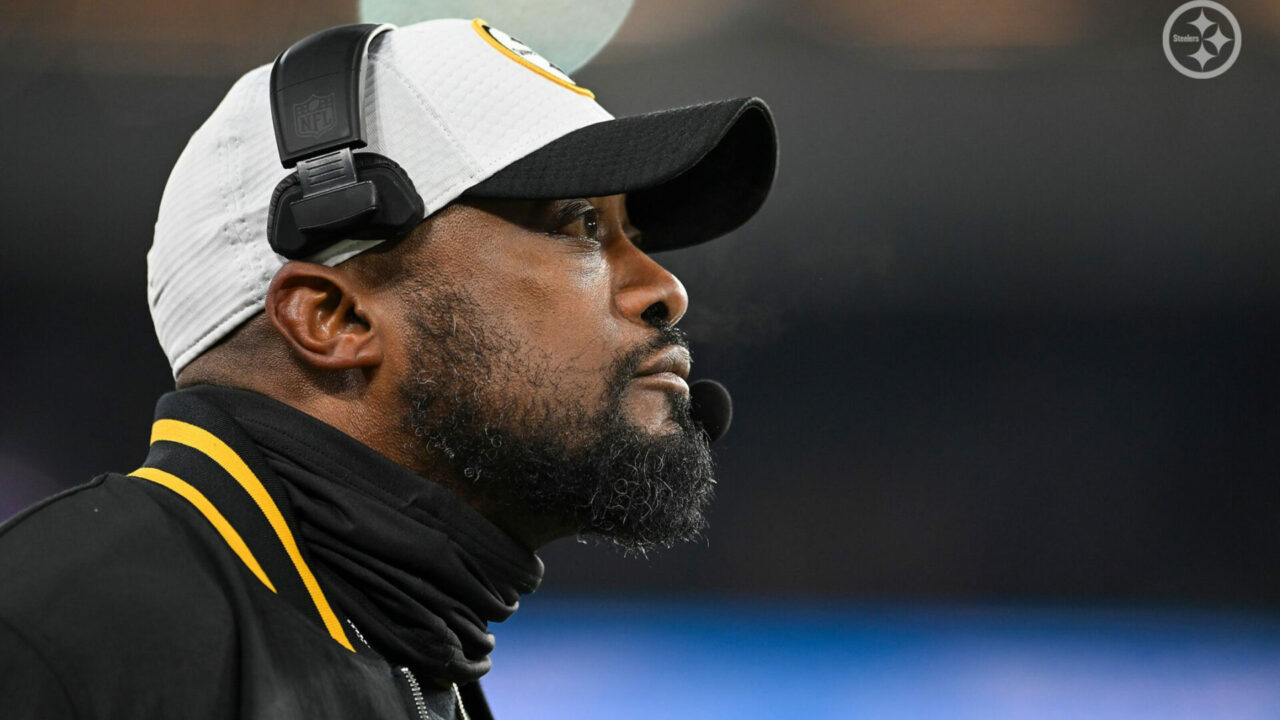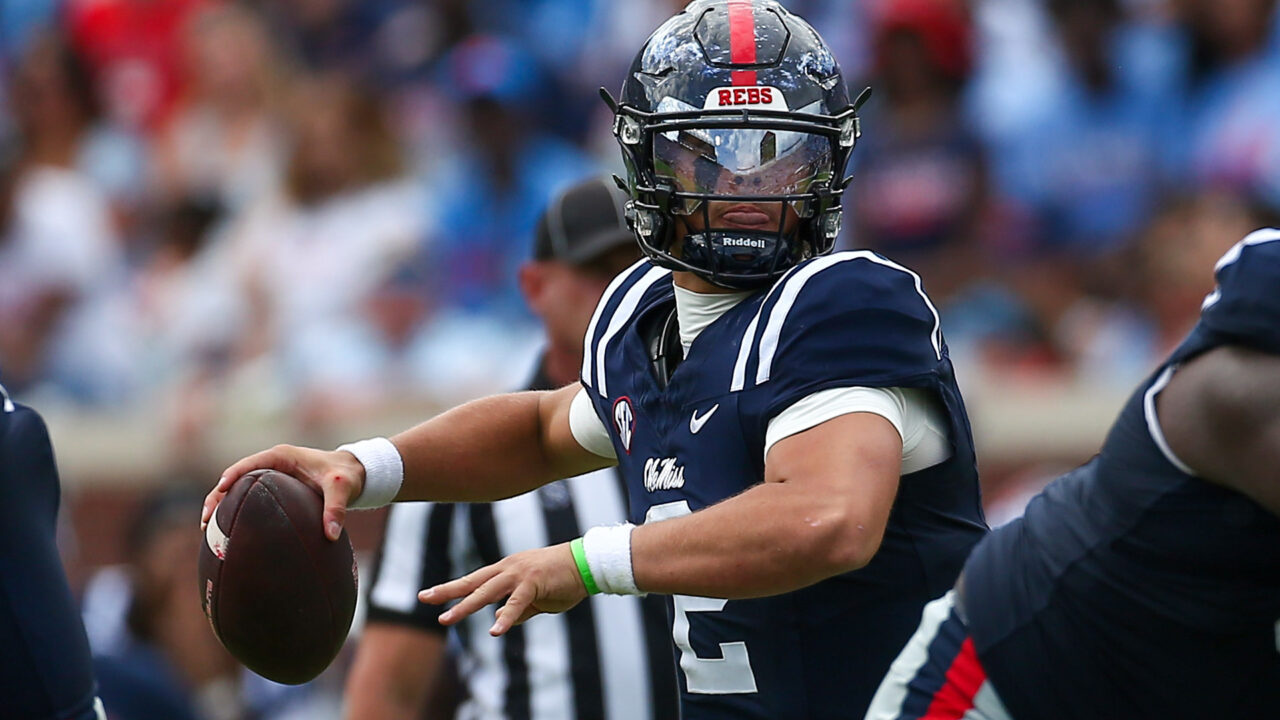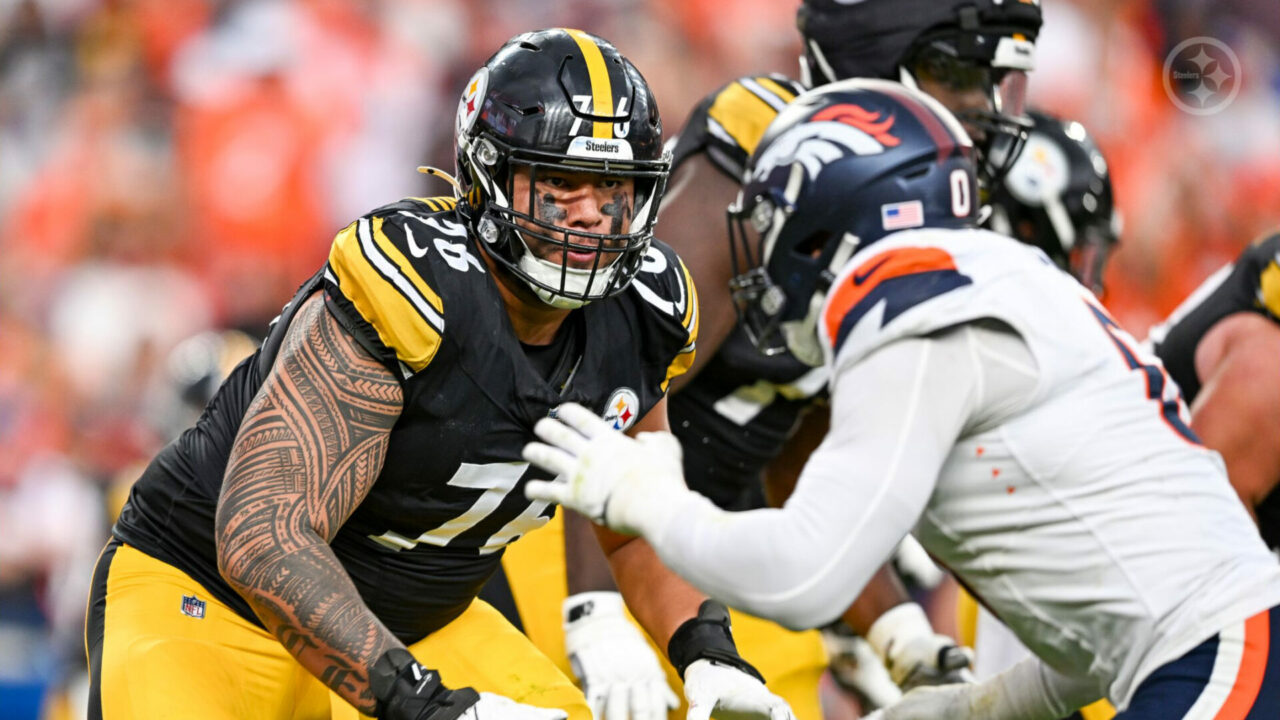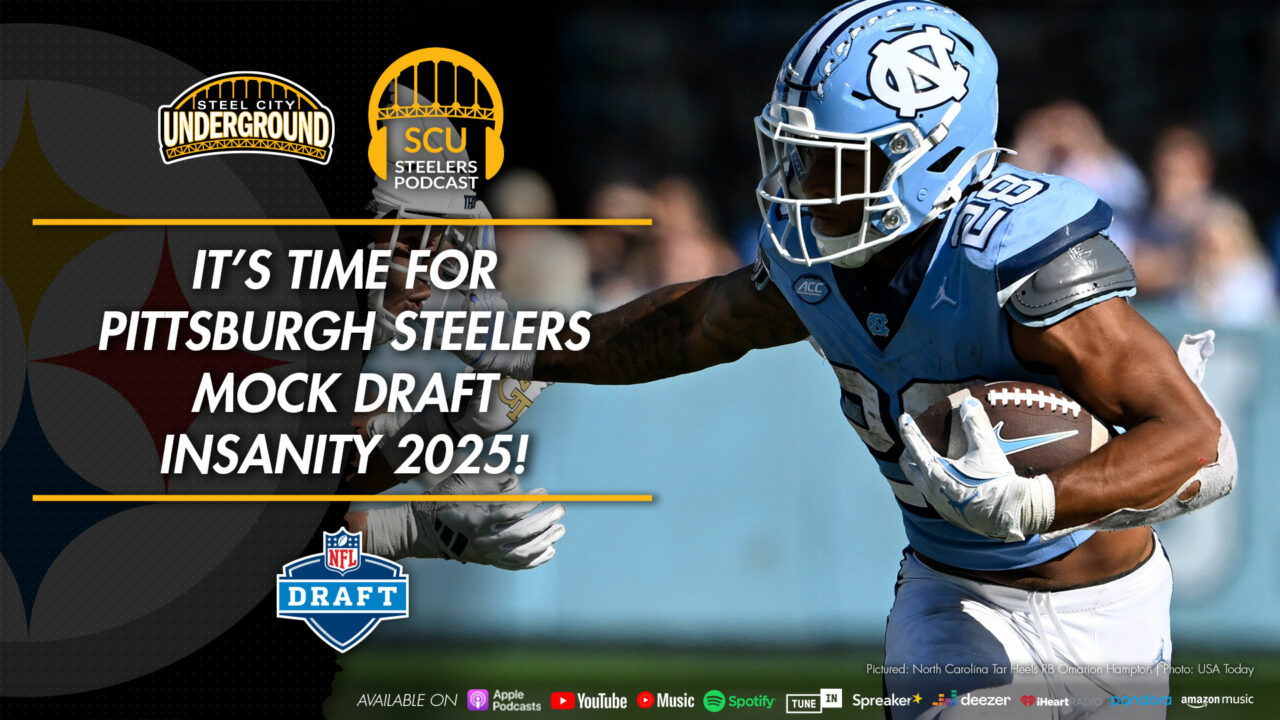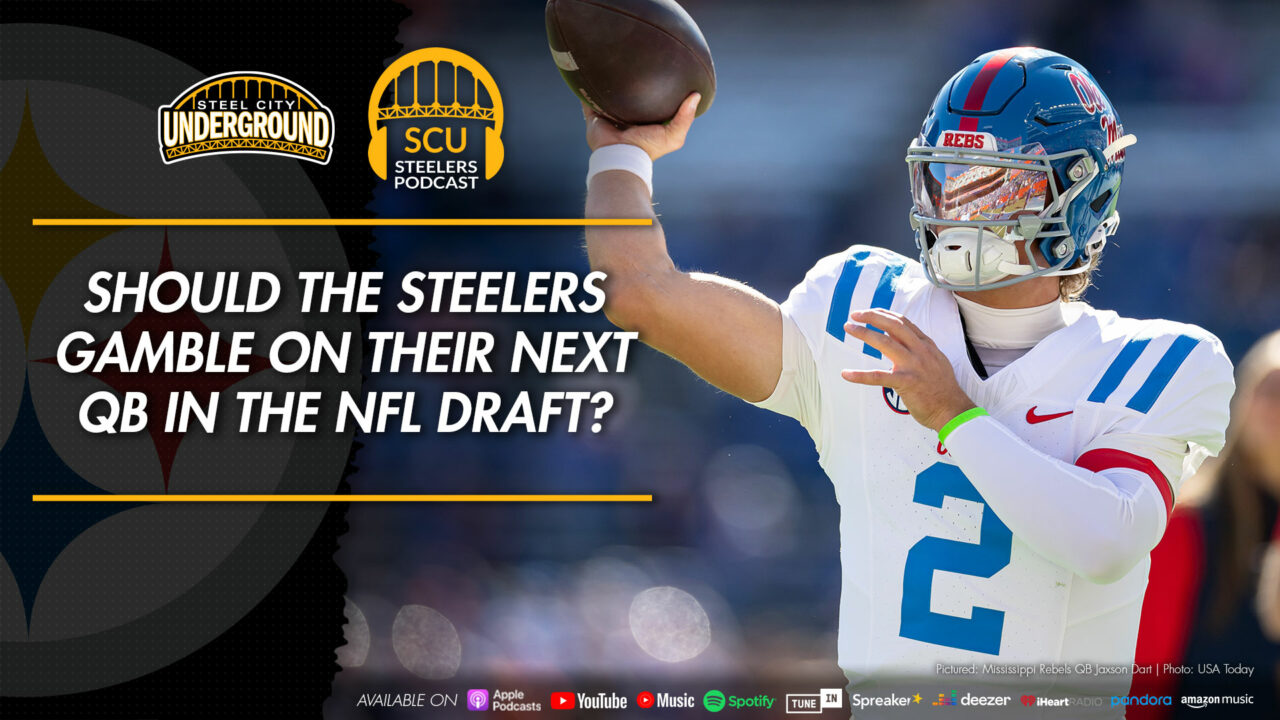Watch: 3 blown calls that altered the course of the Steelers loss to the Chargers
I used to write a column here at SCU entitled You Make the Call whenever there were questionable officiating decisions made during the course of Steelers games. In those weekly features, I attempted to reason with the referee crews within the context of the playing rules and directives of the National Football League.
I had stopped doing those articles after awhile because I felt as though I was starting to sound bitter and petty about calls which may, or may not, have directly impacted the outcome of a game. I’ll be the first to admit I’m biased toward my team and I really didn’t want to make it sound as if the referees were the reason that the Steelers lost games, as there are many other factors to consider over four quarters of football.
Following last night’s Sunday Night Football game between the Los Angeles Chargers and Pittsburgh Steelers, I felt compelled to revisit officiating calls after witnessing one of the most controversially called games, well, maybe ever. (At least in the eyes of being a Steelers fan.)
In the past I’ve seen Jerome Bettis “lose” a coin toss and Jesse James “catch” a touchdown, but nothing may take the cake when compared to the Steelers blowing a 16-point lead and losing 33-30 in the closing moments of a game where several decisions, that is a call or no-call, were made.
I’m of the opinion if these any of these three calls were made differently on the field of play Sunday night, the Steelers would not have been on the losing side of this game. Here are those three situations and why I felt compelled to highlight them.
Missed false start leads to a TD
Honest to God, this felt like the beginning of the end. The Steelers were rolling smoothly, getting out to a 13-0 in the first quarter when disaster first struck in terms of missed calls by the officiating crew.
As you watch the clip, I’m not even sure how anyone can justify a different result here. It was 1st-and-10 from Pittsburgh’s 46-yard line when their right tackle, Sam Tevi, erroneously jumps before the snap. His movement threw off the Steelers defense, who were obviously out of sync, while the Chargers (as a smart team should do) continue playing for a whistle.
The whistle, nor the flag, ever came. The play is not reviewable, and LA’s seven points from this play stood.
Illegal block in the back leads to another touchdown
Fool me once…
How does that saying go? Well, not only was this an instance where a penalty (a block in the back) was once again missed by the referees and (once again) led to a Chargers touchdown, but there were actually two blocks in the back on this play!
It’s tough to see but watch right after Brian Allen (29) is first hit in the back, you’ll see L.J. Fort (54) being blocked and attempting to turn (also questionable, but probably a fair play in real time) but look to the left of him (upfield) on the screen and you’ll witness yet another Chargers player thrown their hands up as if to say “I didn’t do anything!”
Preposterous.
The punt return points and ensuing two-point conversion tied the game at 23-all.
Don’t blink or he’ll miss it
I say this sarcastically, because if the referee blinks, he misses not once, but twice, where the Steelers were actually onside as opposed to the call of offsides on the field.
The first call on Joe Haden doesn’t have a definitive view with this camera angle, however, what we can see is that Haden is clearly held up and over his shoulder pads without so much as a thought of a penalty called.
If the first offsides isn’t called, the field goal is missed and there are no other plays to judge. But because that’s not what happened, I decided to add the Artie Burns blocked field goal play which follows next as a “bonus” fourth blown call.
Watch the slow-motion replay and be the judge for yourself: was Artie offsides? Or was it a legal play that cost the Steelers a victory on the final play of the game?
